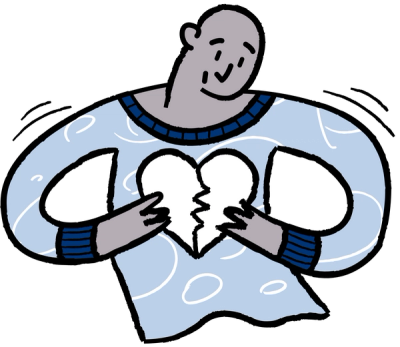What are the causes of suicide?
The causes of suicide are complex and vary from person to person. While progress has been made, there is still much to be learned about what leads to suicide, and more research is needed to understand this issue better.
What we do know, is that suicide can affect anybody, at any time, regardless of gender, age, background, or history of mental ill-health. Some people who die by suicide may have struggled with mental health issues for a long period of time, while others may make a ‘spur of the moment’ decision.
And while suicide can have a direct cause in some instances, in most cases, there are usually many different contributing factors to a person wanting to end their own life.
Therefore, rather than talk about ‘causes’, we usually consider the ‘risk factors’ that might contribute to a person’s decision to end their own life. In general, the more risk factors present, the higher your overall risk of suicide will be.
Below are some of the main risk factors for suicide. If you notice any of these in yourself or others, try not to panic. Not everyone who displays these risk factors is suicidal. However, if you are experiencing suicidal thoughts or feelings, we encourage you to seek support as soon as possible, such as contacting Lifeline, or if life is in danger, call 000.
- Psychological factors
- Social factors
- Environmental factors
- Other risk factors
“When my ex-wife moved away with our child, I lost the last bit of identity, fell into a hole and attempted suicide. ”
Groups at greater risk of suicide
While anyone can experience suicidal thoughts and feelings, some groups are at greater risk of suicide than others. However, it’s important to note that belonging to one of these groups does not mean you’ll have suicidal thoughts and feelings. Similarly, those who have suicidal thoughts and feelings might not belong to any of these groups.
These groups are:
- Men
Men are three times more likely to die by suicide than women in Australia, even though women attempt suicide at a much higher rate. This disparity could be explained by a number of things, including the use of more violent and lethal means, gender roles, higher substance misuse in men and lower rates of help-seeking in men.
- LGBTQIA+
- First Nations Australians
- Rural and remote Australians
- Low socio-economic status
- Low education
- Culturally and linguistically diverse people and communities
- Veterans
- Individuals who have experienced loss
- Substance misuse
Feeling suicidal can be a deeply distressing and isolating experience. Suicidal thoughts can often feel overwhelming and unbearable. It is important to remember that suicidal thoughts are a sign that you are in emotional pain, and you deserve to move through that emotional pain and experience a happy, fulfilled life. There are some things you can do to help you manage suicidal thoughts and feelings from day to day, as well as other important things you can consider to help tackle the root causes for long-term healing. If you need to speak with someone, Lifeline is always here for you. If your life is in danger, call 000.
Download our fact sheets:





